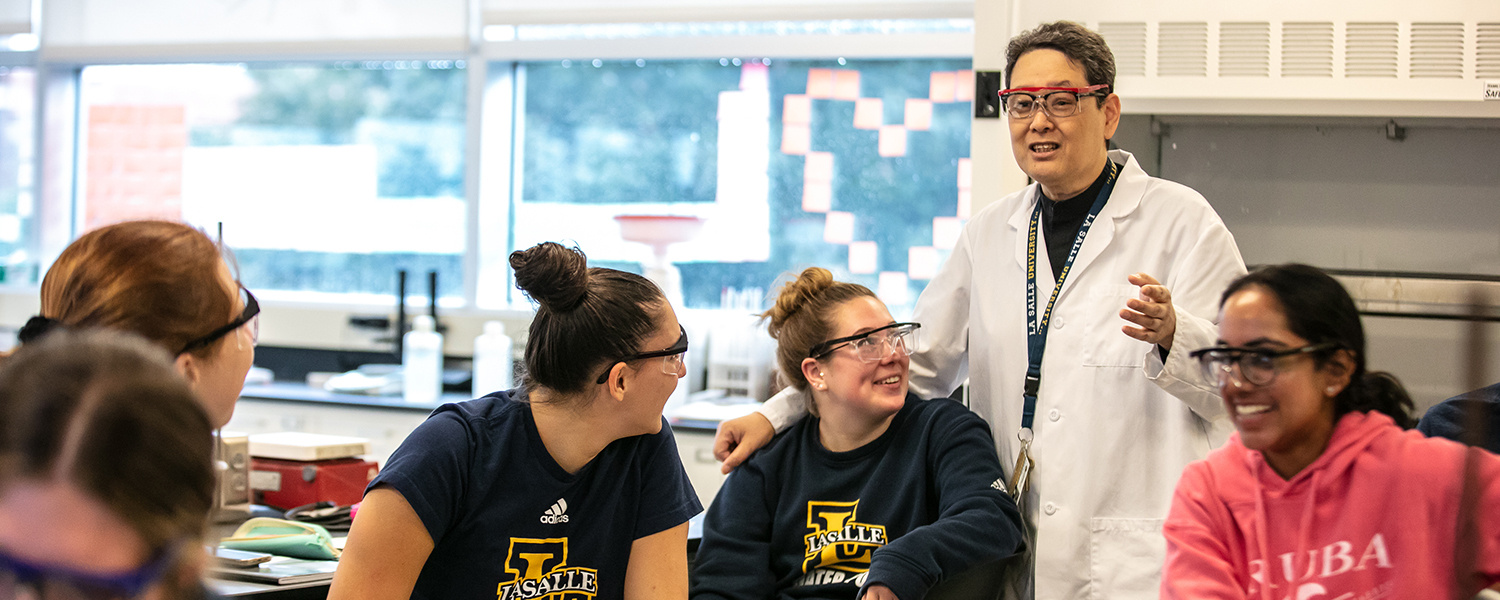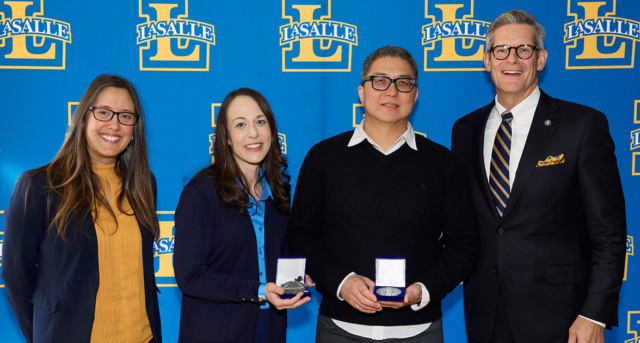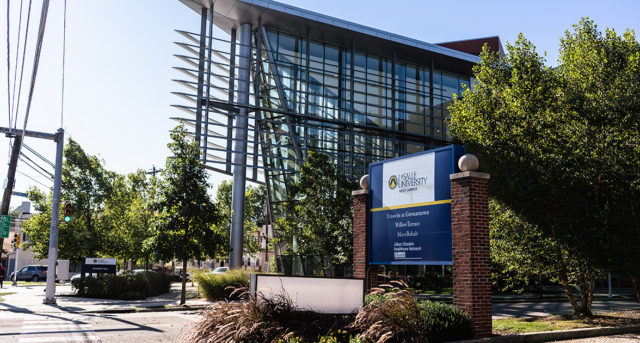La Salle University

What You’ll learn
La Salle’s Biochemistry and Chemistry bachelor degree programs are approved by the American Chemical Society (ACS) in recognition that it offers a “…broad-based and rigorous chemistry education that gives students intellectual, experimental, and communication skills to become effective scientific professionals.” Students are members of a community of curious and knowledgeable lifelong learners. Implicit in our mission is a profound respect for the individual learner and an emphasis on the ethical responsibility of scientific inquiry towards the broader local, national, and global communities.
Why Study Biochemistry at La Salle?
La Salle Biochemistry has a long tradition of successful alumni. Our graduates have been accepted by Graduate, Ph.D., and Masters programs across the country including: the University of Pennsylvania, Johns Hopkins University, Michigan University, the Ohio State University, Temple University, Drexel University, Villanova University, Delaware University, and the University of Maryland.
Biochemistry and Chemistry students at La Salle are given ample research opportunities as undergraduates. Students are highly encouraged to perform independent research projects, which can include a broad array of topics such as renewable energy, environmental soil remediation, computational simulation of atmospheric chemistry and biomolecules, or syntheses of drug compounds. Students also have opportunities to present their research at conferences, particularly the National Meetings of the American Chemical Society, where they can connect with practicing scientific professionals from around the world.
The La Salle Chemistry and Biochemistry program also provides students hands-on experience with advanced chemical instrumentation, including a 400 MHz NMR, a Scanning Electronic Microscope, an FTIR, and GCMS, that will give them a step up in their future scientific careers.
Highlighted Courses
BIO 310 – Genetics
Students receive an introduction to genetics at the molecular, cytological, and organismal level. Included are the thorough coverage of Mendelian and other basic transmission genetics phenomena in the light of our knowledge of DNA and cell structure and function; mutation and mutagenesis; and an introduction to recombinant DNA.
BIO 402 – Cell Biology
This course examines the physical properties, chemical structure, and metabolism of simple and specialized cells, as well as recent advances in the techniques of cell culture and investigation.
BIO 430 – The Biology of Cancer
The cellular and molecular mechanisms driving cancer’s hallmark phenotypes is explored. Students gain an informed understanding of the inherent challenges cancer presents and assess the prospects of treating and ultimately curing the disease.
Meet the Faculty
The Biochemistry department at La Salle trains students to be critical thinkers and problem solvers. As a liberal arts university, our curriculum offers a solid background in the fundamentals of chemical and biochemical sciences along with a broad-based education to prepare students to pursue a range of careers. Students are made aware of the interconnections of biochemistry with the other sciences and also with the social sciences, business, and the humanities. Graduates leave the program as dynamic, adaptable, and prepared individuals ready for almost anything they will face in the future.
Career Opportunities
According to the Bureau of Labor Statistics, the median annual wage for biochemists and biophysicists was $102,270 in May 2021. Employment of biochemists and biophysicists is projected to grow 15 percent from 2021 to 2031, much faster than the average for other occupations.
Our students have participated in the following internship opportunities:
- PeproTech
- Johnson Matthey
- PolySciences
- Philadelphia Water
- National Renewable Energy Laboratory
- DAAD RISE, Paderborn, Germany
- Undergraduate Research Experiences at:
- Texas A&M University
- Kansas State University
- The University of Connecticut
- University of North Carolina Chapel Hill
- Mississippi State University
- Kent State University
La Salle gave me a very strong scientific foundation in terms of knowledge as well as technical skills that has been helpful in transitioning into my Ph.D program.

As part of its annual Mission and Heritage Week celebration, La Salle University proudly recognized two outstanding members of its community with 2025 Distinguished Lasallian Educator Awards on April 9, 2025.

The 2025 Day of Giving raised the most money of all 12 Days of Giving to date, reaching more than $1.9 million in support of La Salle students.

Ranked tied for 100, La Salle is one of just two Philadelphia-area institutions to be listed in the top 100 of the USNWR 2025 Best Business School rankings.